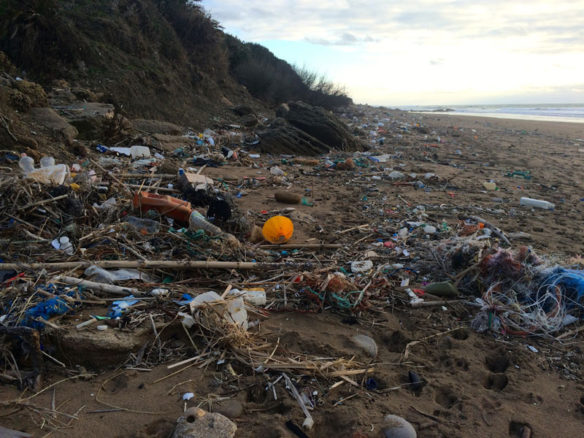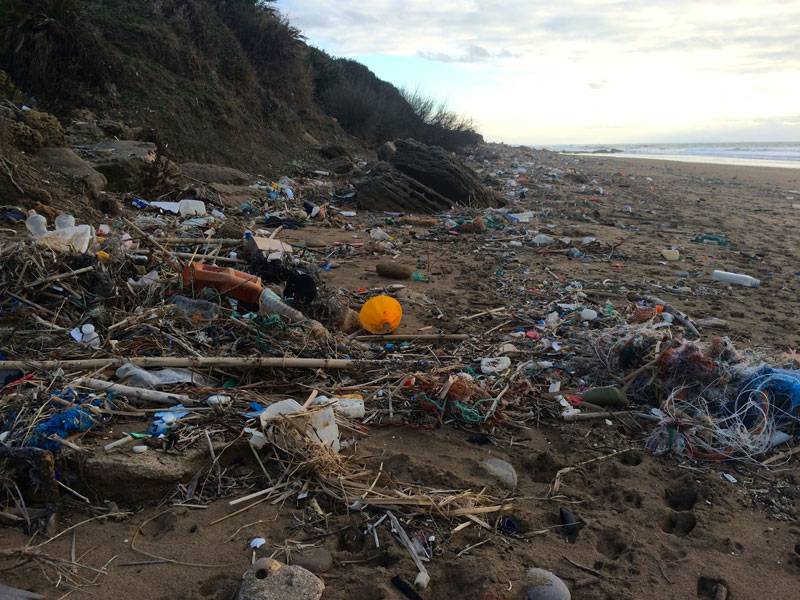
“The unprecedented plastic waste tide plaguing our oceans and shores, can become as limited as our chosen relationship with plastics, which involves a dramatic behavioral change on our part…”
Captions and Photo: © SAF — Coastal Care
Excerpts;
The European Union has proposed banning plastic products like cotton buds, straws, stirs and balloon sticks when alternatives are easily available in an attempt to reduce litter spoiling beaches and ocean beds…
Read Full Article; CBS News (05-28-2018)
New York city to consider banning plastic straws; Guardian UK (02-23-2018)
Plastic straw makers brace for bans; CNN (02-23-2018)
Plastic straw manufacturers are bracing for big changes. The tide is turning against their product. Cities and countries around the world are stepping up pressure on businesses and consumers to ditch the plastic drink accessory because of the pollution it causes…
More than 8. 3 billion tons of plastics made: Most has now been discarded; Science Daily (07-19-2017)
Humans have created 8.3 billion metric tons of plastics since large-scale production of the synthetic materials began in the early 1950s, and most of it now resides in landfills or the natural environment, according to a study.
More plastic than fish in the sea by 2050, Guardian UK (01-19-2016)
One refuse truck’s-worth of plastic is dumped into the sea every minute, and the situation is getting worse, according to a new report launched at the World Economic Forum today. New plastics will consume 20% of all oil production within 35 years, up from an estimated 5% today…
Plastic pollution: When The Mermaids Cry: The Great Plastic Tide, Coastal Care
Plastic is versatile, lightweight, flexible, moisture resistant, strong, and relatively inexpensive. Those are the attractive qualities that lead us, around the world, to such a voracious appetite and over-consumption of plastic goods. However, durable and very slow to degrade, plastic materials that are used in the production of so many products all, ultimately, become waste with staying power. Our tremendous attraction to plastic, coupled with an undeniable behavioral propensity of increasingly over-consuming, discarding, littering and thus polluting, has become a combination of lethal nature…
You Can Help Turn the Tide on Plastic. Here’s How.; The National Geographic (05-26-2018)
Collecting plastic waste near coasts ‘is most effective clean-up method’, Guardian UK (01-19-2016)
Loving the Ocean Starts at Home, National Geographic (09-08-2016)









